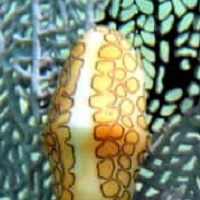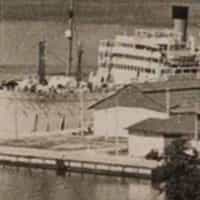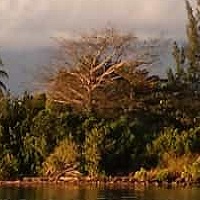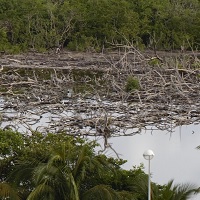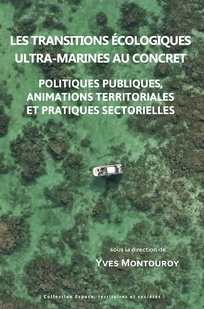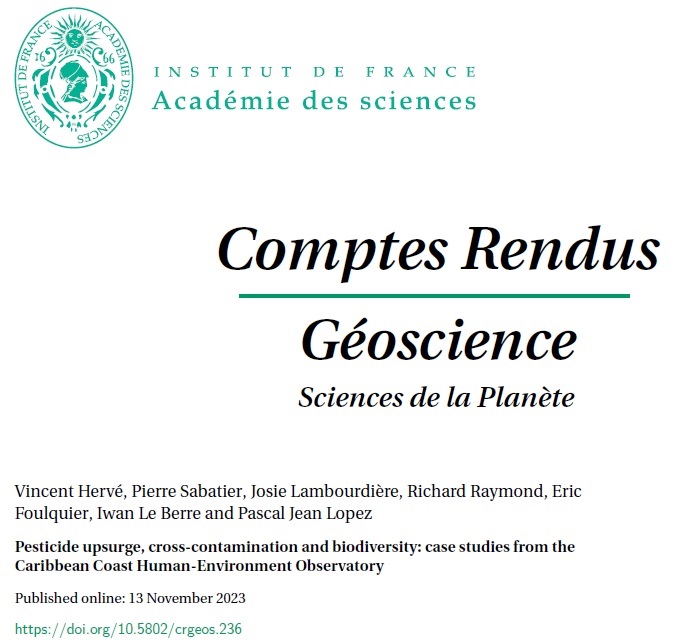- Détails
Ce livret pédagogique est composé de 9 séquences pédagogiques à destination du cycle 4 sur la thématique des mangroves.
En s’appuyant sur des formats variés (expérience, analyse de graphiques, identification d’espèces, etc.), il invite les élèves à développer et approfondir des compétences et connaissances multiples autour de cet écosystème unique et fragile. Basé sur des résultats de la recherche scientifique, les notions qui y sont abordées permettent d’identifier les composantes et le fonctionnement des mangroves, de comprendre l’impact du changement climatique et de l’empreinte humaine mais aussi de traiter des représentations sociales de ce milieu.
Il s’inscrit dans le cadre du projet Educ'OHM Mangroves lancé en 2020 par le LabEx DRIIHM. Il comprend un volet dédié à l’éducation à l’environnement et au développement durable visant à favoriser l’éducation par la recherche grâce à la mobilisation de l’OHM Littoral Caraïbe et de structures d’éducation guadeloupéennes.
Auteurs : Jeanne Briche, Pascal-Jean Lopez,
Corinne Pardo,
Richard Raymond et Chloé Roger
- Détails
Dans le cadre de la semaine « écologie, environnement, biodiversité » de 2024 organisée par le CNRS Ecologie et Environnement (https://www.inee.cnrs.fr/fr/semaine-ecologie-environnement-et-biodiversite-comprendre-les-socio-ecosystemes-pour-agir) , une série d’échanges est proposée sous la forme de trois tables rondes. L’objectif est de questionner les trajectoires socio-environnementales des Antilles Françaises et identifier des leviers d’action pour faire face aux défis posés. Les thèmes qui seront abordés sont : « Protéger la nature, c’est préserver le vivant », « Alimentation et territoires, les Antilles dans la mondialisation » et « Partage de l’espace maritime ».
L'intention de cette journée est de partager en présentiel nos réflexions sur ces thèmes. Néanmoins, pour ceux qui seraient dans l'incapacité de venir nous avons créé un lien de visioconférence : https://cnrs.zoom.us/j/97068058284?pwd=RHpyeXhuUXV5alcwUnd5a0Z3aEVUQT09
Lien pour l'inscription obligatoire : https://seebantilles.sciencesconf.org/
Date : le 28 Mai 2024
Lieux : La Créole Beach Hôtel & Spa. Pointe de la Verdure 97190 Gosier Guadeloupe, France
- Détails
Les transitions écologiques ultra-marine au concret.
Politiques publiques, animations territoriales et pratiques sectorielles
Sous la direction de Yves Montouroy
Collection : Espace, territoires et sociétés
Éditeur : Presses universitaires des Antilles
- Détails
L'Observatoire Hommes-Milieux est heureux de vous convient à son séminaire de restitution qui aura lieu ce mardi 20 Juin 2023 à l'Université des Antilles.
Programme ici.
Lien Zoom :
https://univ-antilles-fr.zoom.us/j/86271165764?pwd=T0VmSnZwZzVKNXU1VTBCSXpWZVVvZz09
ID de réunion : 862 7116 5764 Code secret : 414593




